Originally posted on: Forbes
by Steven Aquino
Contributor
Diversity & Inclusion
Steven covers accessibility and assistive technology.
Barry Dean is a Grammy-nominated songwriter who has written songs for such country music stars as LeeAnn Rimes, Carrie Underwood, and Tim McGraw. Dean also is an entrepreneur, with a deep affection for accessibility and assistive technology. His daughter, Katherine, was born four months prematurely, weighing 1 pound 10 ounces. As a result, she was born with cerebral palsy that has caused her to use a wheelchair as her primary means of mobility.
Dean’s awareness of wheelchair accessibility and safety was heightened when he learned a friend’s mother suffered traumatic injuries after tipping over in her chair. The statistics are grim: 87% of wheelchair users have experienced a fall in the last three years, and a 2015 Georgetown University study found people in wheelchairs are “a third more likely” to be killed in a road accident.
Dean resolved to take action to help mitigate wheelchair accidents, so he enlisted his engineer brother, Jered, for assistance. Jered had spent many years working in product development, designing such things as weapons systems and medical devices. He visited Barry in Nashville in 2017 to modify his niece’s chair as the first step to finding a safer and smarter solution; it would be the initial prototype of LUCI, which launches today.
“LUCI is the response to a need—a problem we witnessed. It’s very easy for Katherine and others to collide with walls, or drive off curbs and sidewalks and flip over,” Barry said in an interview. “Once you tip over, it’s not always easy to get out from under a wheelchair, which can weigh up to 400 pounds.”
It was during the brothers’ meeting in Nashville that they set their goals for LUCI and embarked on research and development. They delved deep into the wheelchair industry, working with top experts in fields such as situational awareness, cloud computing, and mobility. The ambition is to make power wheelchairs smarter and more stable, with the hope these characteristics help users like Katherine, now 19, to feel more empowered and independent.
LUCI is a combination of hardware and software that mounts between the power base and seat of existing power chairs. The system prevents users from collisions, potentially dangerous drop-offs, and aids in maintaining control of the chair. In addition, LUCI alerts users and caregivers of battery status and monitors the potential for tipping. Barry told me LUCI endured over 25,000 hours of testing, saying the team worked with a third-party development company to review their design and engineering work. LUCI is also internet-connected, offering apps for Android, iOS, and the web; it even supports voice assistants in Amazon’s Alexa and the Google Assistant.
“We committed ourselves to build to the need and try to change the world for wheelchair users through innovative technology,” Barry said. “One way of doing that is to include the rider and their chair in the same technologies as the rest of us.”
Barry said it wasn’t he and Jered’s intention to formally start a company with LUCI. They did so, he told me, out of concern the wheelchair industry would “take too long to help our family members and friends, if ever.” Thus, intervening felt necessary and the right thing to do. “[W]e’ve used modern technologies and development methods and a team of roboticists, engineers and experienced advisors to develop a platform for the future,” Barry said.
On LUCI’s goals and functionality, he added: “LUCI was built, from the ground up, to provide a platform for collaborative data sharing. This type of open-source data sharing has the potential to contribute much needed objective, data driven evidence needed for the advancement of the field of Seating and Mobility,” he said. “High quality evidence is needed to improve coverage policies, clinical practices, and most importantly the mobility outcomes achieved by those who are relying on power mobility to go where they want to go, when they want to go…with confidence.”
The feedback about LUCI thus far from users has been positive. “We’ve honestly been amazed at the level of positive reaction,” Barry said. “It has really confirmed our belief that we weren’t alone in wanting this kind of innovation breakthrough.” Barry added beta testers provided invaluable insights and have staunchly championed the technology throughout the development cycle. In fact, buzz around LUCI has been so pronounced that two universities—the University of Washington and the University of Colorado at Denver—both included LUCI in their applications for federal grants.
The coronavirus outbreak obviously has slowed the ability to add new users, but LUCI is nonetheless deployed to small groups of users and clinics across five states. As clinics begin to reopen to inpatient visits, Barry said they’ll be expanding the partnership with even more users and clinics who are enthused about LUCI. “I think there’s a lot of excitement from all quarters—that’s what we’re experiencing,” he said.
As for the future, Barry said a big goal is to get more health insurance companies to pay for LUCI for people who need it. Power chairs typically are covered under most policies, but LUCI is in another league. Insurance companies need to “recognize the need for safety systems and linked technologies for persons with a long-term disability,” he said.
He continued: “We understand that the price of innovation may not be covered by insurance immediately,” he said. “We believe, however, when riders, providers, and policymakers see what can be accomplished, and look at the health and cost benefits of LUCI, we’ll see a positive change toward reimbursement policy.” Acceptance will take time, but Barry and team are confident once insurers sees the innovative ways in which LUCI changes lives, they’ll come around.
Ultimately, the team hopes in the long-term LUCI will be to wheelchairs what the iPhone was to mobile computing. The hope is LUCI and its technologies eventually becomes the standard-bearer in the industry.
“We hope the experience and information LUCI provides will lead to real improvements in riders’ experience, health, and quality of life,” he said.
You can learn more about LUCI here.














